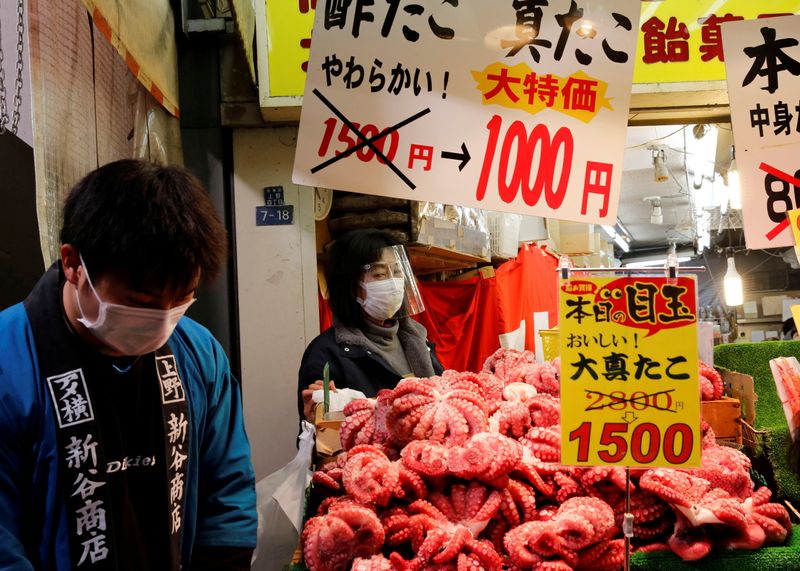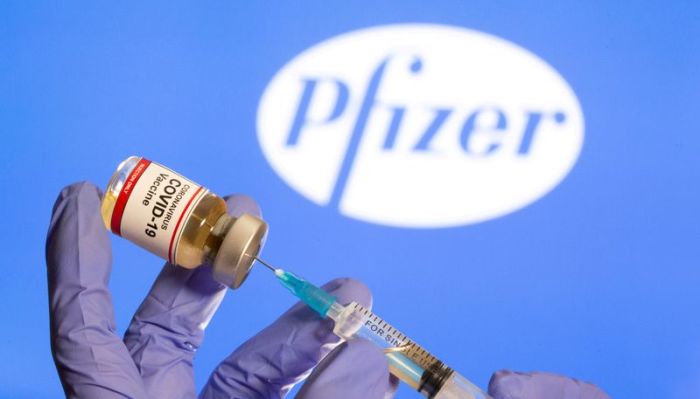TOKYO (Reuters) – Japan’s core consumer prices marked the sixth straight month of annual declines in January but the pace of falls slowed, offering some relief for policymakers worried about deflationary pressures the economy face from the coronavirus pandemic.
Still, soft domestic demand means the Bank of Japan’s priority will be to avert a return to deflation, unlike other countries such as the United States where inflation has recently perked up.
Core consumer prices, which includes oil products but excludes volatile fresh food costs, fell 0.6% in January from a year earlier, government data showed on Friday, compared with a median market forecast for a 0.7% drop.
The decline was smaller than a 1.0% drop in December, partly due to the termination of the government’s “Go To” discount campaign for domestic travel and a recent rebound in fuel costs.
Durable goods prices rose on strong demand from stay-home policies to prevent the spread of the pandemic, with prices of air conditioners rising 7.2% and those for microwave ovens up 12.2%, the data showed.
The so-called “core-core” CPI, which strips away the impact of both energy and fresh food costs, rose 0.1% from a year earlier after three straight months of declines.
“Looking past a potential renewed drag once the Go To campaigns resume … inflation should recover into positive territory over the coming months as energy prices rebound and underlying price pressures return in line with the economic recovery,” said Tom Learmouth, Japan economist at Capital Economics.
Japan’s economy expanded more than expected in the fourth quarter, extending the recovery from its worst postwar recession thanks to a rebound in overseas demand that boosted exports and capital spending.
But new state of emergency curbs rolled out in January cloud the outlook, underscoring the challenge policymakers face in preventing the spread of COVID-19 without choking off a fragile recovery.
(Reporting by Leika Kihara; Editing by Sam Holmes)


























